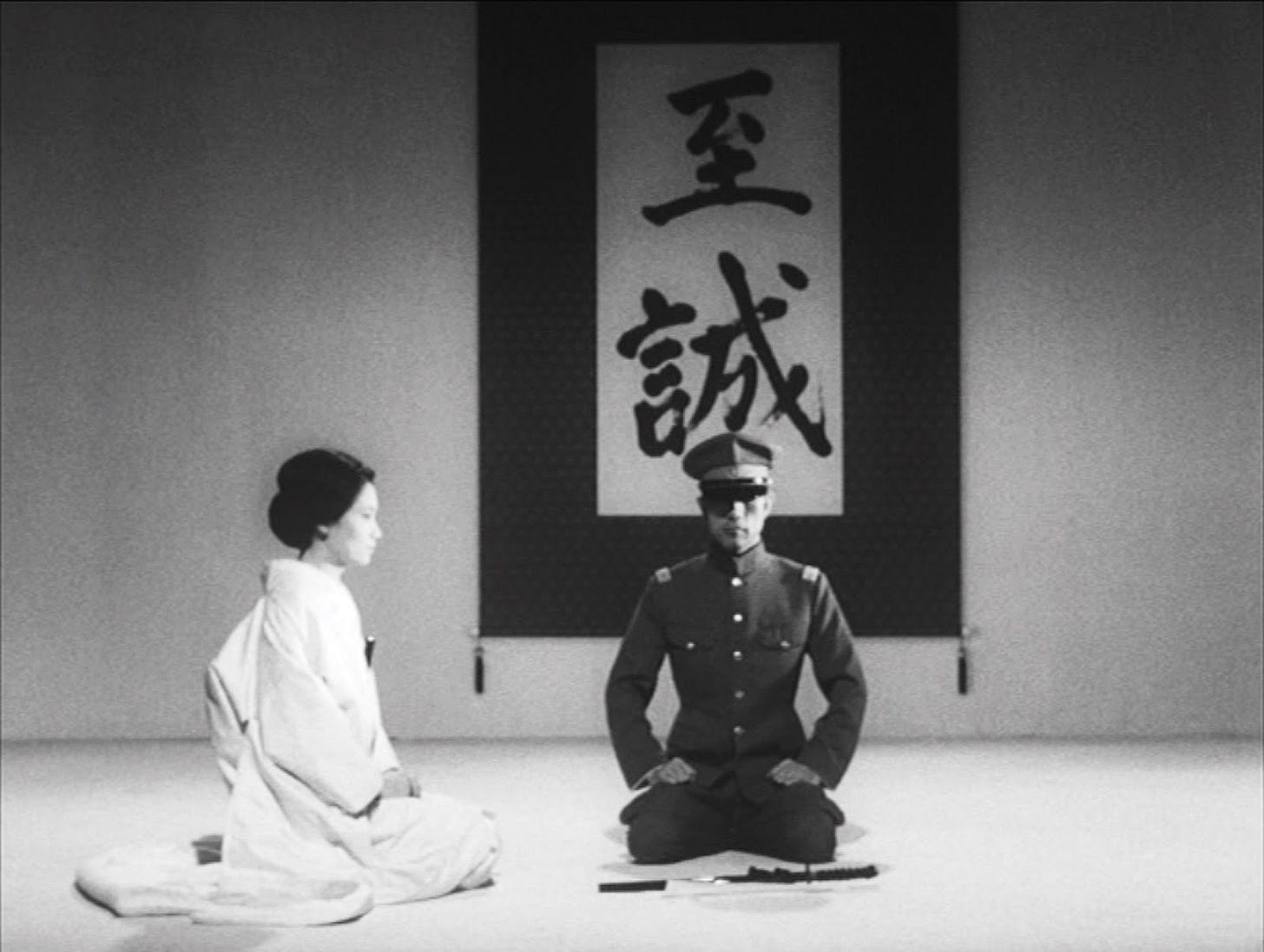I found that the Way of the Samurai is death.
— Yamamoto Tsunetomo, Hagakure (1716)
I respect Yukio Mishima as a man who lived and died as his ideology demanded. Today I wish to examine his death.
What is the line between suicide and martyrdom? How do we give meaning to that act which divides this world and the next? Is a holy death still possible?
I.
In A.D. 203, Saint Perpetua had a vision on the eve of her martyrdom.
A Carthaginian noblewoman of the Vibii family, she had refused to renounce Christianity, and was sentenced to death under the edict of Septimius Severus. Imprisoned with her newborn child, she was to die in the arena, facing gladiators and beasts.
But her spirit was not crushed. On the contrary - strong of spirit - she rejoiced in her coming death, knowing that it was the prelude to her meeting with God.
As she waited in prison, she was given a vision:
And I went up to the master of gladiators and received the branch. And he kissed me and said to me: Daughter, peace be with thee. And I began to go with glory to the gate called the Gate of Life.
And I awoke; and I understood that I should fight, not with beasts but against the devil; but I knew that mine was the victory.
— St. Perpetua, The Passion of SS. Perpetua and Felicity (trans. W. Shewring)
Here the ‘Gate of Life’ refers to the Porta Sanavivaria - the gate through which, after gladiatorial combat, the victors returned. At the opposite end of the arena was the Porta Libitinensis - the Gate of Death - through which the bodies of the fallen were carried.
Perpetua knew that she was to join in that great Christian contradiction of martyrdom - the defeat that brings victory; the death that brings life.
And so, along with her slave Felicity, she went to her death.
Now dawned the day of their victory, and they went forth from the prison into the amphitheater as if it were into heaven, cheerful and bright of countenance; if they trembled at all, it was for joy, not for fear. Perpetua followed behind, glorious of presence, as a true spouse of Christ and darling of God; at whose piercing look all cast down their eyes. Felicity likewise, rejoicing that she had borne a child in safety, that she might fight with the beasts, came now from blood to blood, from the midwife to the gladiator, to wash after her travail in a second baptism.
And from their deaths, to their glory.
…being adorned with the crowns of martyrdom, did achieve the flower of perpetual felicity; bearing in the battle the name of Christ, and in the prize of battle finding their own.
— St. Augustine, Sermon upon the feast of SS. Perpetua & Felicity
My question today, then, is: did Mishima pass through the Gate of Life or the Gate of Death?
Keep reading with a 7-day free trial
Subscribe to Becoming Noble to keep reading this post and get 7 days of free access to the full post archives.




